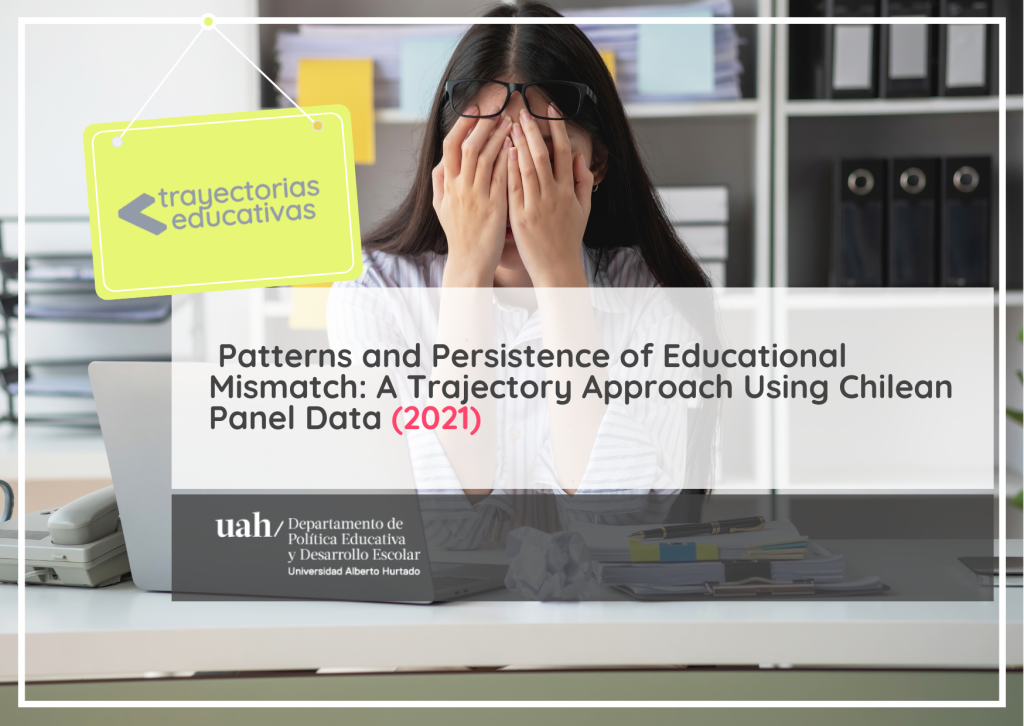AUTORES: Sevilla, María Paola; Farías, Mauricio; Luengo, Daniela
AÑO DE PUBLICACIÓN: 2021
INSTITUCIÓN: UAH
DISPONIBLE EN:
https://ideas.repec.org/a/gam/jscscx/v10y2021i9p333-d630366.html
RESUMEN:
The misalignment between workers’ educational levels and the educational level typically required for their occupations, namely educational mismatch, has become widespread. However, despite its potential costs, there is little evidence of this situation in developing countries. Using longitudinal and retrospective data of employment histories between 2009 and 2019, this paper conducts sequence analysis to construct a typology of educational mismatch trajectories among Chilean workers. We demonstrate that mismatch is a prevalent and persistent phenomenon. Once people enter the labor market, either as undereducated or overeducated workers, they tend to stay in such positions for extended periods of time. Moreover, we find significant wage penalties for workers in a mismatch situation. Results indicate that females and young, less-educated men are more prone to follow trajectories with longer periods of mismatch or unemployment. New avenues for research and the need for public policies looking at these phenomena are required to avoid people’s dissatisfaction due to a possible false promise that more education can improve their life standards.



